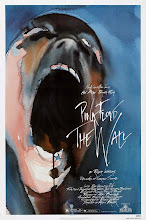 This is the album "Exodus" by Bob Marley ...
This is the album "Exodus" by Bob Marley ... .
.
.
.
Year: 1977
.
.
.
.
Recorded shortly after the attempt on reggae superstar Bob Marley's life, Exodus veers from dire predictions to the height of his expression of and hope for unity. The first half of the record focuses on Marley's clear insights into the heart of Babylon. Songs such as "The Heathen," "Guiltiness," and the cautionary "So Much Things to Say" observe the problems of the world. The second half lays out the solution, focusing on love and unity with such essential songs as "One Love/People Get Ready," "Waiting in Vain," and the lyrical love song "Turn Your Lights Down Low." As always, Marley sings with such passion, it's as if his voice were connected to a universal soul. Lending additional weight, the Wailers all give nuanced and stirring performances: a popping drum riff here, a poetic guitar solo there. Layer upon layer, their incredible interplay shines through, the delicate elements of these arrangements build to a powerful display of roots reggae. Marley reacted to being shot as few men would, writing, "One love/One heart/Let's get together and feel all right."
Track Listing:
1.Natural Mystic music or lyric2.So Much Things to Say music or lyric 3.Guiltiness music or lyric
4.The Heathen music or lyric
5.Exodus music or lyric
6.Jamming music or lyric
7.Waiting in Vain music or lyric
8.Turn Your Lights Down Low music or lyric
9.Three Little Birds music or lyric
10.One Love/People Get Ready music or lyric
11.Jamming (Long Version) music or lyric
12.Punky Reggae Party (Long Version) music or lyric






